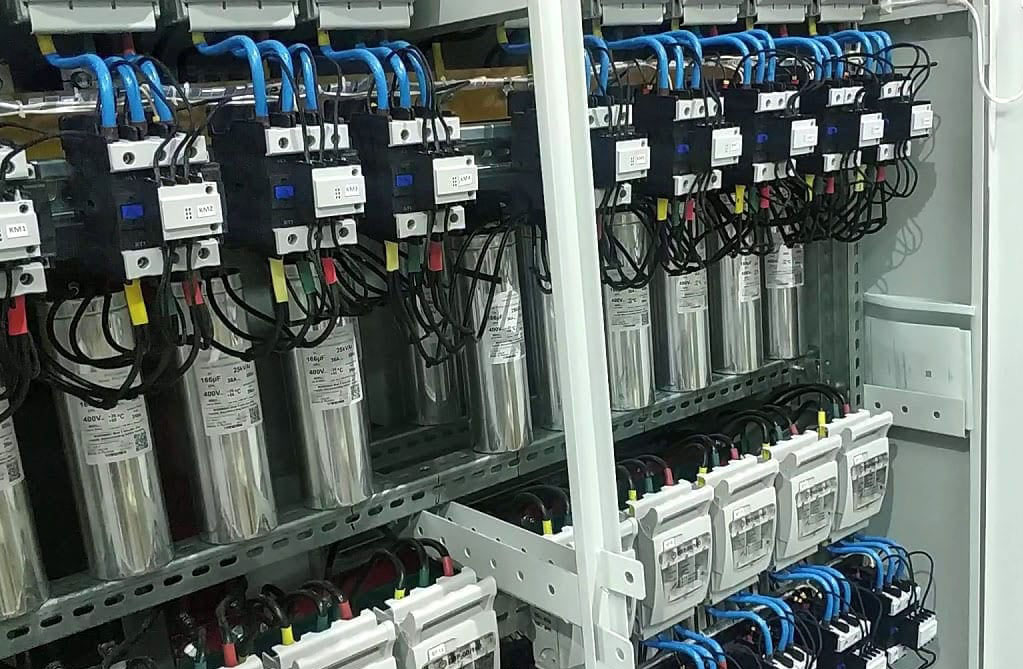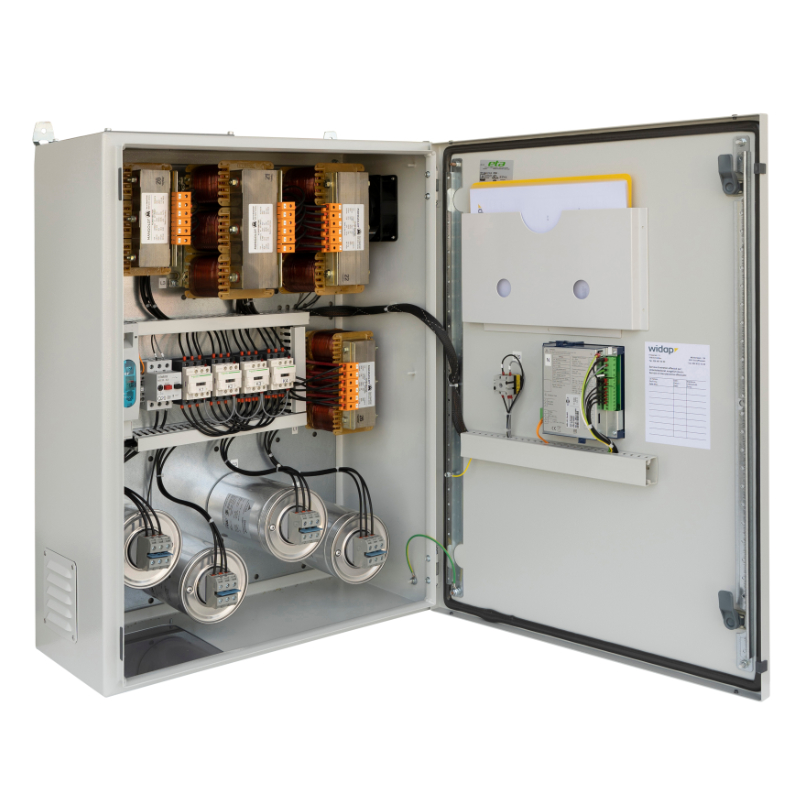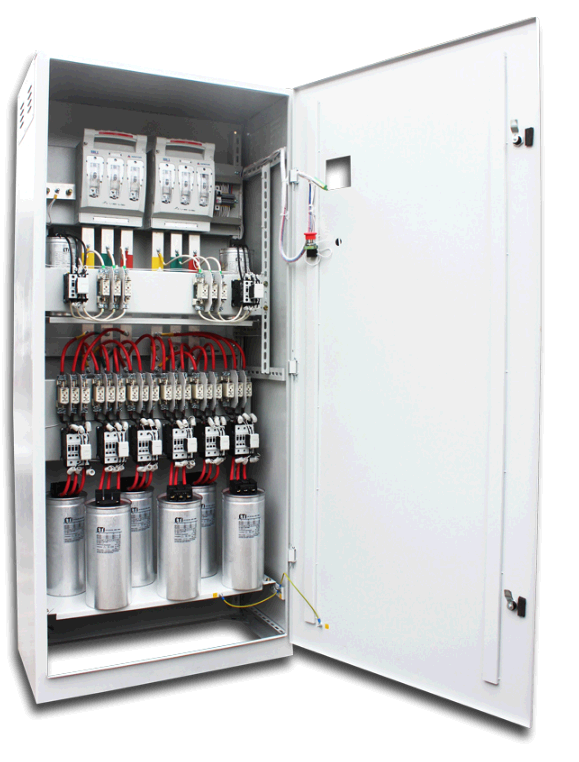COMPENSATION SYSTEMS
What is the compensation system?
Compensation systems are systems that regulate the power factor by providing reactive power compensation to an electrical system. Reactive power arises from inductive loads used in industrial facilities and commercial buildings. These systems are designed to improve the energy efficiency of industrial facilities and buildings.
Advantages of Compensation Systems:
- Power Factor Regulation:
Compensation systems optimize the power factor in industrial facilities, thus increasing energy efficiency.
- Cost Savings in Energy:
Reactive power compensation reduces energy consumption losses, resulting in cost savings on electricity bills.
- Extending Equipment Lifespan:
A high power factor extends the lifespan of electrical equipment, reducing maintenance costs.
- Voltage Regulation:
Compensation systems regulate system voltage, providing protection against overvoltage or voltage drops.
- Reduction of Environmental Impact:
Increased energy efficiency means less energy consumed, contributing to a reduction in environmental impact.
Applications of Compensation Systems:
- Industrial Facilities:
Widely used in manufacturing plants, factories, and industrial facilities to improve energy efficiency.
- Commercial Buildings:
Preferred for energy efficiency in commercial buildings such as office buildings, shopping malls, and hotels.
- Power Plants:
Compensation systems are used in energy production facilities to increase system efficiency.
- Infrastructure Projects:
Used in city infrastructure projects, especially in energy distribution networks, to regulate the power factor.
Why Compensation Systems?
Compensation systems play a critical role in increasing energy efficiency, optimizing energy costs, and protecting electrical systems. These systems are an essential part of modern energy management strategies and promote sustainable energy use.




